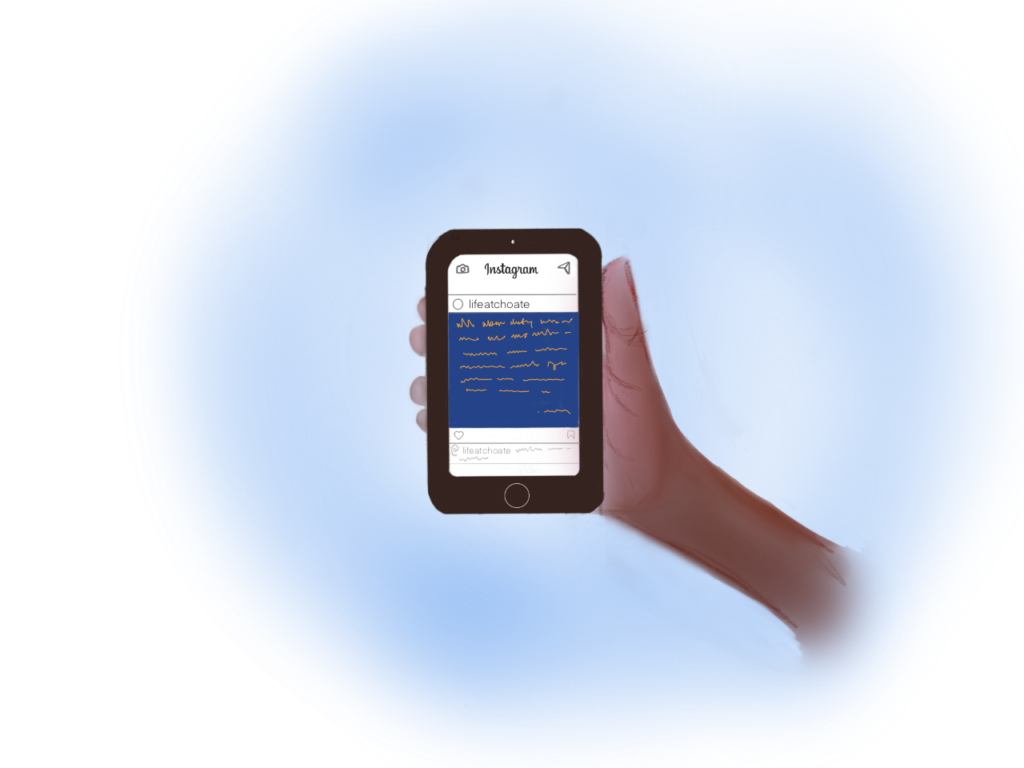In recent months, we have increasingly read in our social-media feeds of the often traumatic experiences on campus of Black, Indigenous, People of Color (BIPOC), and LGBTQIA+ students from the Instagram accounts @BlackatChoateOfficial, @LifeatChoate, and @QueeratChoate. Each Instagram account advocates in its own way for a more equitable and just School and society. But what, really, is “social activism?”
Associate Director of Equity and Inclusion and science teacher Mr. Filipe Camarotti said it was, “taking actionable steps to bring attention to cultural, institutional, and systemic structures that are failing a society with the intention of improving it or changing it so that it becomes equitable and just to all.”
@LifeatChoate, @QueeratChoate, and @BlackatChoateOfficial started this summer with the goal of offering students and alumni a platform to share their experiences. A representative from @QueeratChoate said, “I think students want to make their voices heard.”
A representative from @LifeatChoate added, “Some people that have had troubling experiences just want to be heard without having those closest to them look at them any differently. Others want to share their experiences without facing backlash from administrators or the community.”
Still, the representatives from @LifeatChoate and @QueeratChoate are hesitant to label their Instagram accounts social activism. “We didn’t have any specific goals other than providing a platform for queer people to share their experiences at Choate,” said the representative from @QueeratChoate.
The representative from @LifeatChoate commented, “We, as an account, aren’t asking for specific changes or advocating for certain positions on issues. All we aim to do is provide a platform for people to speak about their experiences, and hopefully inspire others to take action.” (A message to @BlackatChoateOfficial requesting an interview was not returned.)
With social media, users can successfully spread awareness, educate others, and call for action on a variety of topics such as climate change, gender equality, and racial injustice. A representative @LifeatChoate cautioned, however, that social media “is good for raising awareness, but it’s not the whole fight.”
Raye Osayimwese-Sisson ’23, a student activist who attended protests this summer, said, “I think there is some level of social activism that is performative, and while it is important to show other people that you care about them and show the world that you care about them, I think you have to do more than just social media posts and more than just an Instagram story post and really go out there and get involved in multiple other things.”

Graphic by Julian Hurley/The Choate News
Alumnus Caleb Maddox ’20 is a vocal activist on Instagram, but he is quick to point out the potential perils of social media activism: “I think we get stuck in this place of ‘I’ve done my job today. I’ve posted a few articles to read about said topic, and that’s it,’ and that isn’t going to do anything.” This points to the ornamental act of posting of black squares with hashtags such as #BlackLivesMatters or #BlackOutTuesday in solidarity of the movement and daily re-posts of societal issues with no effective follow-up actions.
Yet, despite the possible downfalls of activism in a digital age, Maddox finds the Instagram accounts inspiring and powerful.
He said, “I think a part of activism is highlighting the experiences for the purpose of educating the community and a source of healing, and I think those are equally important. I have read so many @BlackatChoateOfficial and @LifeatChoate posts. I think they’re doing a great job of opening discussion. The most important thing is that people aren’t just glancing over it. It is causing people to ask questions and dig deeper into [what] the real issues are.”
Regardless of whether these Instagram accounts are considered social activism, it is undeniable that the accounts have provided an additional outlet for the Choate community to speak out and raise awareness for change, at the School and society as a whole.
Mr. Camarotti acknowledges that those who have influence or power are responsible for implementing such structural changes. “If those in power are not meeting the necessary expectations, the next step is to hold them accountable until we have an equitable and just community,” he said.
Mr. Camarotti emphasizes a continuous effort for improvement. “Just because the bar has been raised an inch, doesn’t mean it has been raised high enough. We should certainly celebrate accomplishments, but only celebrating accomplishments is an example of privileging participation in the movement over the needs of the movement,” he said.
Maddox pointed out, “It is important to remember [the reason] why we’re having all of these discussions is that we all care about Choate, and that’s why we are doing this. It’s really because we care so much about the community, and we just want to see it be better. We can’t get to that place if we don’t acknowledge what has gone on for so long in all of the communities.”




